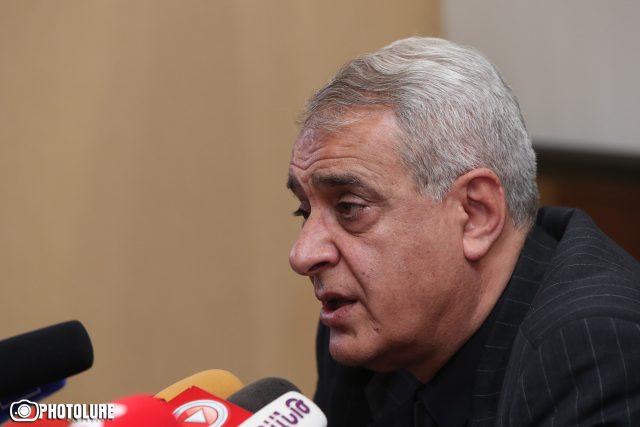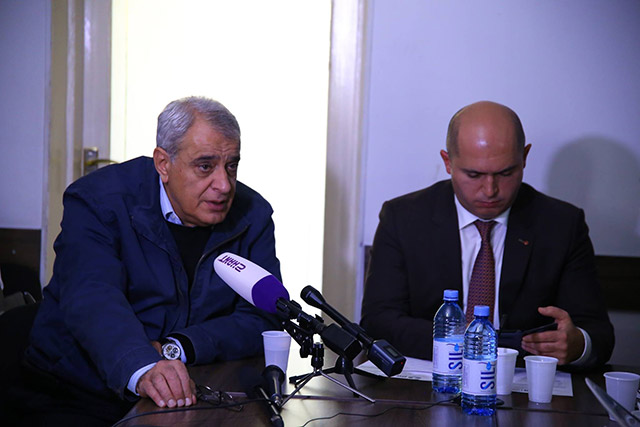“We received good news from the European Parliament. The EU Report on the Implementation of the Common Foreign and Security Policy 2021 was discussed by the European Parliament, which addresses the problems on the planet on different continents and expresses the opinion of the EU. There are a number of important formulations in that report, also related to the Artsakh talks,” RPA Deputy Chair Armen Ashotyan said live on Facebook on February 17.
In particular, the European Parliament adopted the following wording that the only legitimate international format for the negotiation of the Artsakh issue is the OSCE Minsk Group Co-Chairs. The second very important circumstance is the following: the European Parliament stressed that the settlement of the Artsakh talks should be based on three basic principles, including the right of the people of Artsakh to self-determination. This is important due to the fact that for almost a year, serious international organizations have not mentioned or emphasized the right of the people of Artsakh to self-determination. The Minsk Group Co-Chairs have not spoken about it since April last year, and the so-called authorities have completely forgotten about those formulations.
“Almost a year later, the European Parliament, which is one of the most serious political institutions in world politics, emphasized in its annual report that the right of the people of Artsakh to self-determination is one of the three most important principles for the settlement of the Artsakh conflict,” Armen Ashotyan stressed.
According to him, “These non-existent authorities have nothing to do with that report, they did not care, and I am sure they will know from my life that such a thing happened, that there are such formulations on the Artsakh issue. This success was made possible by the work of a number of individuals and political structures, first of all, David Shahnazaryan, the Republican Party and your humble servant. The capitulating authorities have nothing to do with this important protocol, as you know, the issue of the Artsakh talks and the issue of Artsakh has long been “broken” for them. Instead, Nikol Pashinyan and his backpacks in Armenia persistently spread exclusively Azerbaijani propaganda theses, trying to convince us that Artsakh can never again be part of Azerbaijan, while the European Parliament recognizes the importance of the Artsakh people’s right to self-determination in resolving the issue.”
Read also

Former director of the National Security Service (NSS) and ambassador David Shahnazaryan
Armen Ashotyan added that in the past, such things were common for their government. “We have almost always received these formulations in various international instances, including in the European Parliament, through parliamentary diplomacy, at the level of the Minister of Foreign Affairs. At that time I could not have come on live video and claim to have good news, but now the situation has changed in such a way that what was normal for us was right and ordinary, and now it has become important, extraordinary, and urgent.” He informed that Azerbaijan was making persistent efforts to review the section on Artsakh in this report and to remove the parts about the Minsk Group and especially the right of the people of Artsakh to self-determination.
“I have the letters of the Ambassador of Azerbaijan to the EU, the deputies of the European Parliament, the factions, where he tried to persuade the Europeans with mournful and false texts that these formulations are wrong, blah blah blah, as the Europeans say, but thanks to the main players of the European Parliament and our compatriots who were engaged in recording pro-Armenian positions in this report, we managed to keep this wording… Political teams and individuals can always pursue our national interests abroad, it was like that during the RPA. And even though we lost power, it continued like that. Individual figures and pan-Armenian structures have always done that and will continue to do so, but what good would it be if there was a state behind us, and not the anti-national jokes that do not have any national agenda today? We managed to register such a success without the state and without state support.”
Gohar HAKOBYAN























































